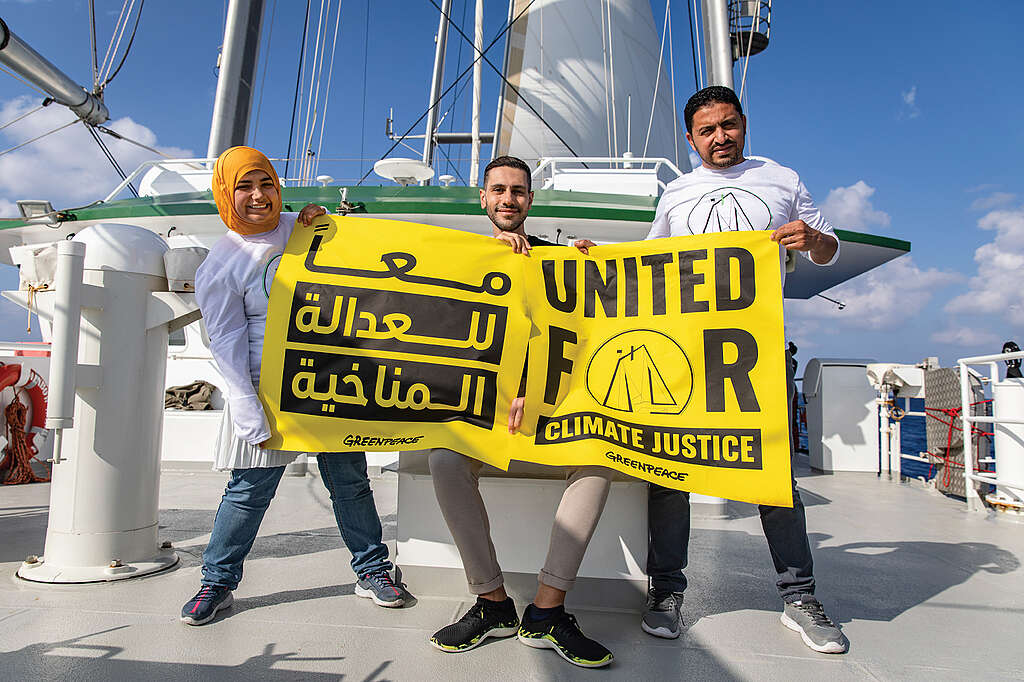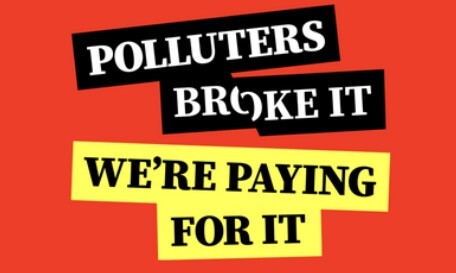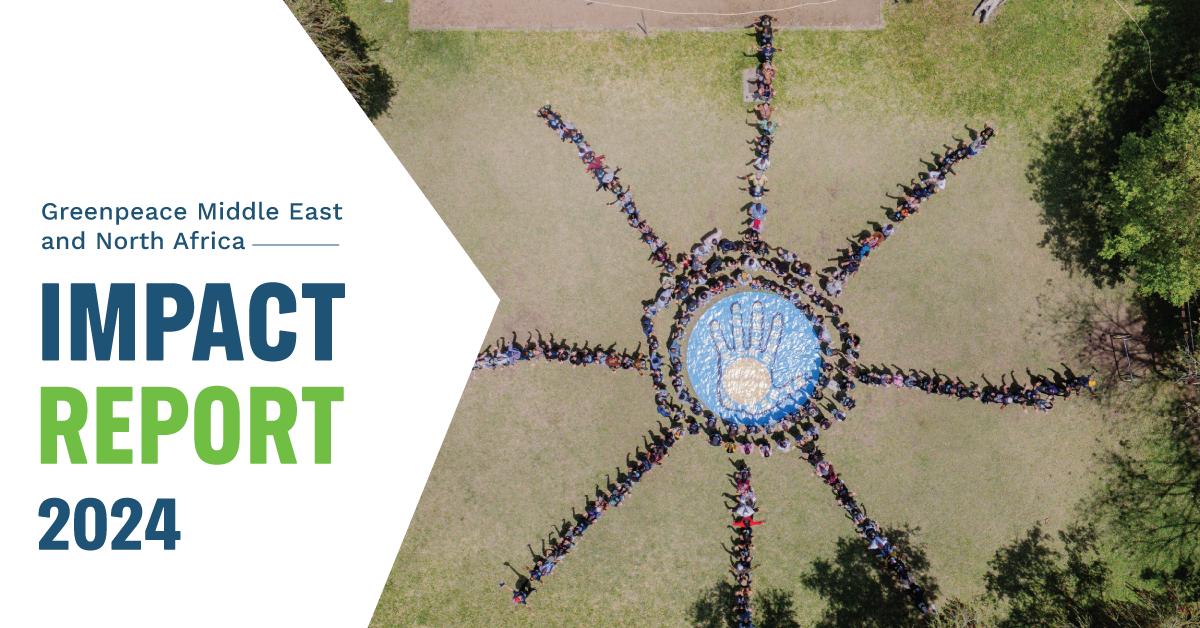The world’s highest court has just delivered a landmark Advisory Opinion on the obligations of States in the face of the climate emergency. The International Court of Justice (ICJ) decision delivers historic protections that strengthen the responsibilities of States under international law beyond the Paris Agreement, with several key additional obligations including the duty of all countries to prevent significant harm to the environment and the duty to cooperate.
The Court’s decision obligates States to regulate businesses on the harm caused by their emissions regardless of where the harm takes place. Significantly, the Court found that the right to a clean, healthy and sustainable environment is fundamental for all other human rights, and that intergenerational equity should guide the interpretation of all climate obligations.

On the International Court of Justice (ICJ) decision, the Executive Director of Greenpeace MENA, Ghiwa Nakat, stated:
“ The International Court of Justice now offers a historical opportunity to change the course of climate justice. With its Advisory Opinion, the Court shifts the way we see climate action—not as an act of charity, but a binding legal and moral obligation under international law.
For too long, international climate negotiations have been slowed by delays and weak commitments—leaving frontline communities, especially in the Global South, without the justice they urgently need. In the Middle East and North Africa, where temperatures rise twice as fast as the global average amid drought, water shortages, and socio-economic fragility, inaction is unaffordable.
The MENA region has no shortage of champions for climate justice. Egypt’s powerful intervention in December at the ICJ Court exemplifies principled climate justice leadership—invoking international law principles, such as the ‘no harm’ rule, which obliges states to prevent, reduce, and control the risk of environmental harm to other countries, and the principle of common but differentiated responsibilities (CBDR), to push for a fairer, justice-based response.
While rich, historically polluting countries tried to keep the Court’s opinion limited to narrow technical questions, Egypt argued for a broader, justice-based view—one that demands accountability, compensation, and protection for the communities most harmed by climate change.
This landmark Advisory Opinion is a decisive reminder that international law is a powerful driver to achieve climate justice. It amplifies the voices of vulnerable communities, holds major polluters accountable, and helps ensure that climate action is fair and inclusive.
As COP30 in Belém, Brazil, approaches, the Court’s actions remind us that true climate justice demands more than promises—it requires accountability. Let this mark the start of a new chapter for a just climate future, where legal systems must be part of the solution.”

Polluters Pay Pact
Sign the pact, record your story. Join the Global movement to make polluters Pay.



